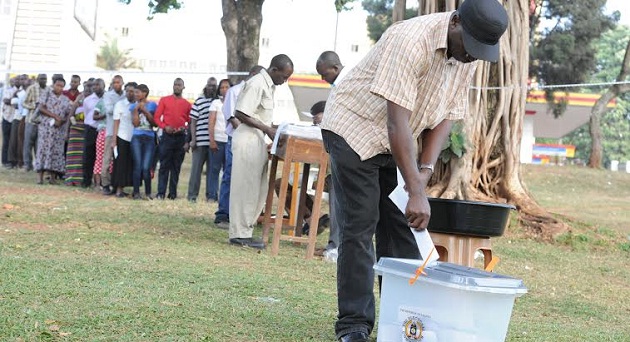
The EC has said elections in newly created constituencies will not take place this year because there is no money. What does this mean for civic awareness campaigns?
First the people in those constituencies are being denied a chance to have representatives as councilors, MPs and that is a cause for worry. I think it is in the best interest for people in those constituencies to amplify their voices around urging government to provide resources for having elections conducted.
EC, as an election management body, is in a Catch 22. If they say they don’t have money, how do we expect them to conduct elections without money? In any case they were supposed to conduct elections in seven districts by July 30 2018 and they did not.
In your letter you called upon President Museveni to rein in election violence like we saw in the Arua by-election last year. But you know very well that this violence tends to be sanctioned from the highest level of the state.
The scale of violence has been increasing when you look at Arua for example. The effects and reverberations occurred across and outside the country. With regard to the perpetrator, we need to foster the question of individual responsibility. A person who has meted out violence on another should be individually responsible on top of an institution being accountable.
I know for sure that many people who participated in that violence; especially the security officers have gone scot free. As the public, we haven’t seen the punishment being handed to them because of their actions that violated the code of conduct. Whether the president is directly responsible or not, he has a responsibility to call his security apparatus to order and to account. Whether that involves him summoning himself and his conscience to think through decisions he may have sent out, is something that needs to be put on the table.
Are you really optimistic about the government enacting electoral reforms?
I tend to remain optimistic at all times. You know the challenges in elections have been increasing from 2001, they are not getting less and something needs to be done. I am inclined to think that with the increasing corruption in elections, the challenges around the use of money in elections; the increasing militarisation of elections, the violence and its effects, the pressure that has come from the Supreme Court around electoral reforms, and the logistical challenges that afflicted the 2016 election all form good ground to really move any right thinking government to do something. If nothing is done, there is no purpose for going to the 2021 elections because we will end up in the same place we were in 2001, 2006, 2011 and 2016. That is why it is important that we take concrete substantive measures in regard to an electoral and political reform process.
By 2021, there may be well over 400 MPs given the many new constituencies. This doesn’t seem good for a fledgling democracy like Uganda. How can we reverse this trend?
We just have to work on it using the first level reforms that we have proposed in the past. The increasing expenditure of public administration is worrisome and many more MPs, district chairpersons and councilors come in with creation of new districts. Previously, we have called for a moratorium on district creation and representation must be rationalised. Previously we have also called for the rationalisation of special interest group representation. Why should there be representatives of the army, workers in parliament, and other groups on a direct vote and yet we are in a multiparty dispensation.
All these should come through political parties and not as separate constituencies. We need to review the representation of parliament every ten years as the 1995 constitution states.
Around independence time, we had 14 or 15 districts and even in the National Resistance Council (NRC), we were well represented. From the roadmap released by the EC for 2021, we will be electing 1.5million people that is before you add the LC1 and 2. If you have numbers crossing 2million, what are they leading? So we need to rationalise public administration.
 The Independent Uganda: You get the Truth we Pay the Price
The Independent Uganda: You get the Truth we Pay the Price



